Ethics in Finance and Accounting: A Business Finance Report
VerifiedAdded on 2023/04/19
|5
|719
|167
Report
AI Summary
This report provides a critical review of ethics in finance and accounting, prompted by recent financial crises. It examines the interplay between finance, accounting, and ethical considerations, focusing on the integration of ethics and efficiency. The report explores issues such as control measurement, ethical behavior, financial misconduct, professionalism in accounting, ethical investing, and corporate reporting. It highlights the importance of fairness and justice in the finance world, critiquing existing control systems and the causes of misconduct. The report also covers corporate reporting, emphasizing the significance of integrated reporting for incorporating environmental, social, and governance issues. The author emphasizes the need for ethical rules and the reformation of professionalism in financial reporting, concluding with recommendations for improved reporting practices.
1 out of 5
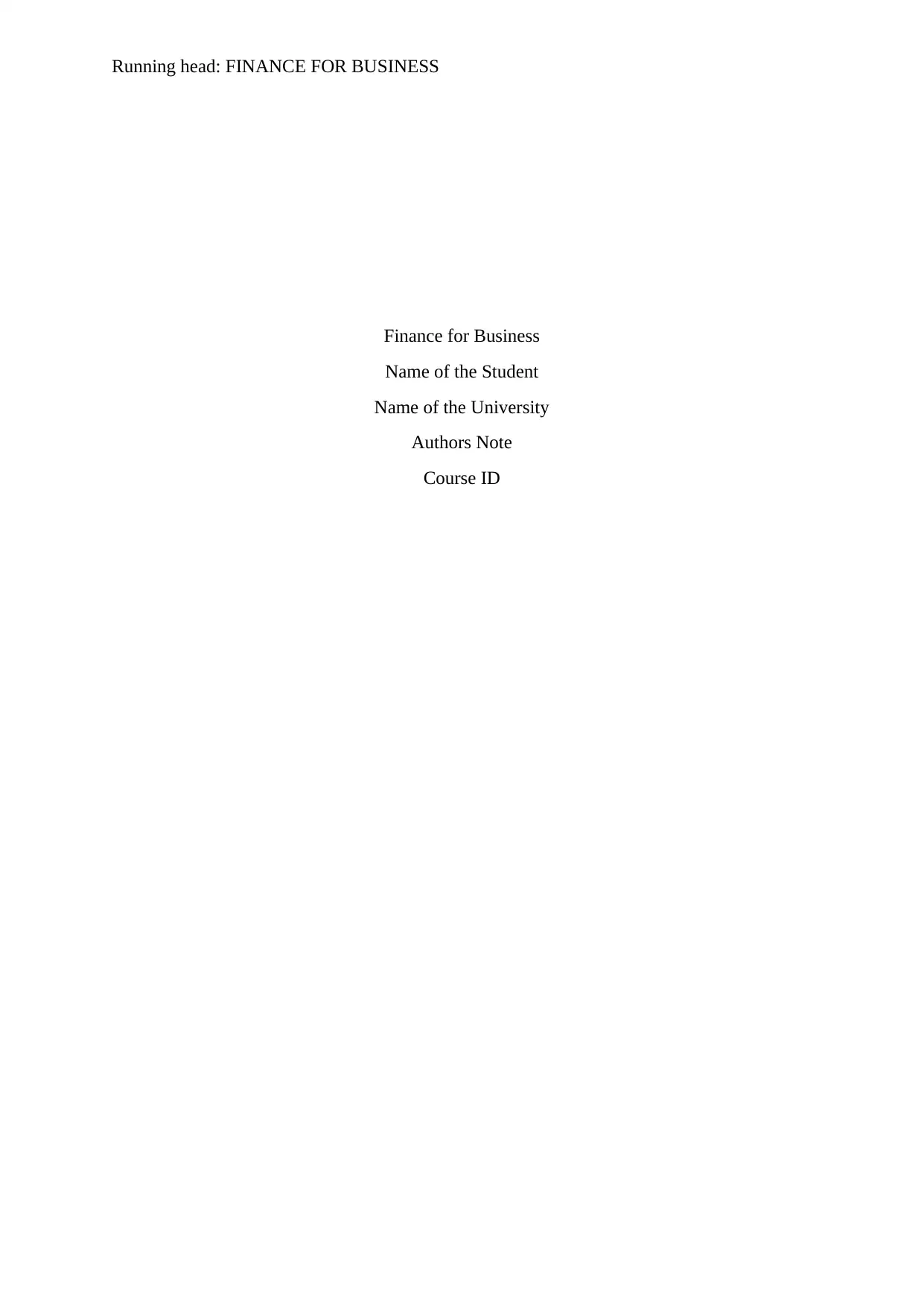
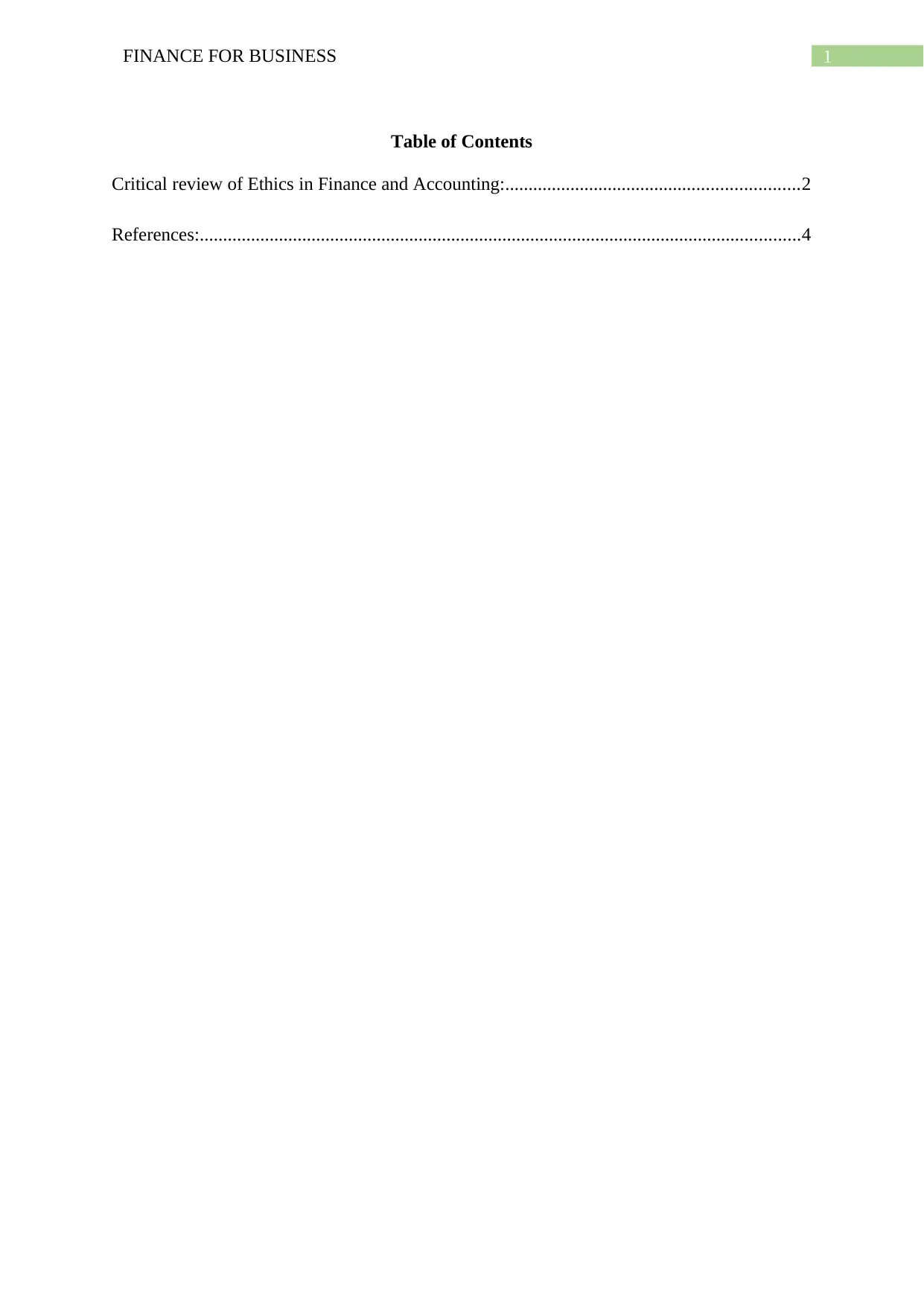
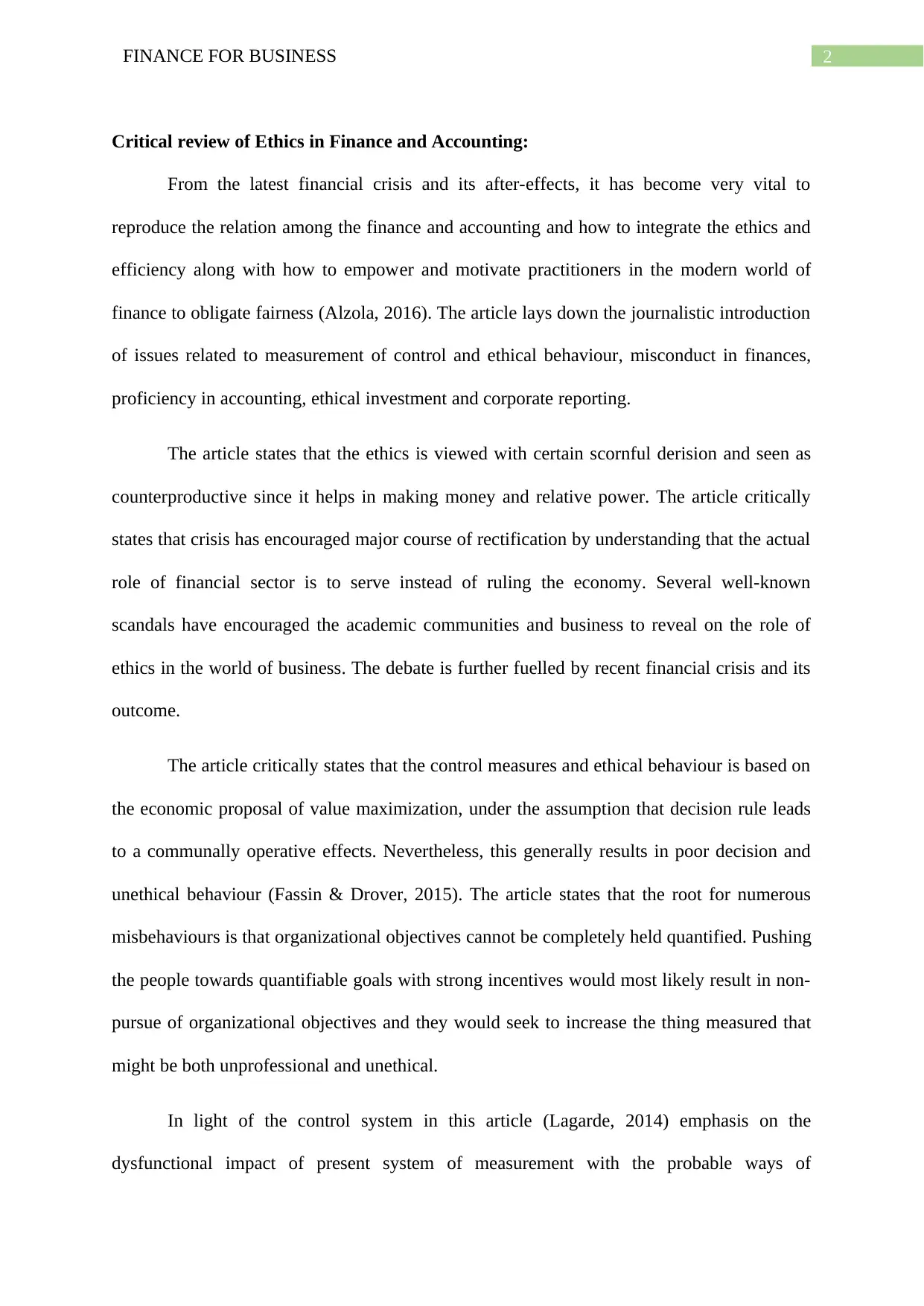

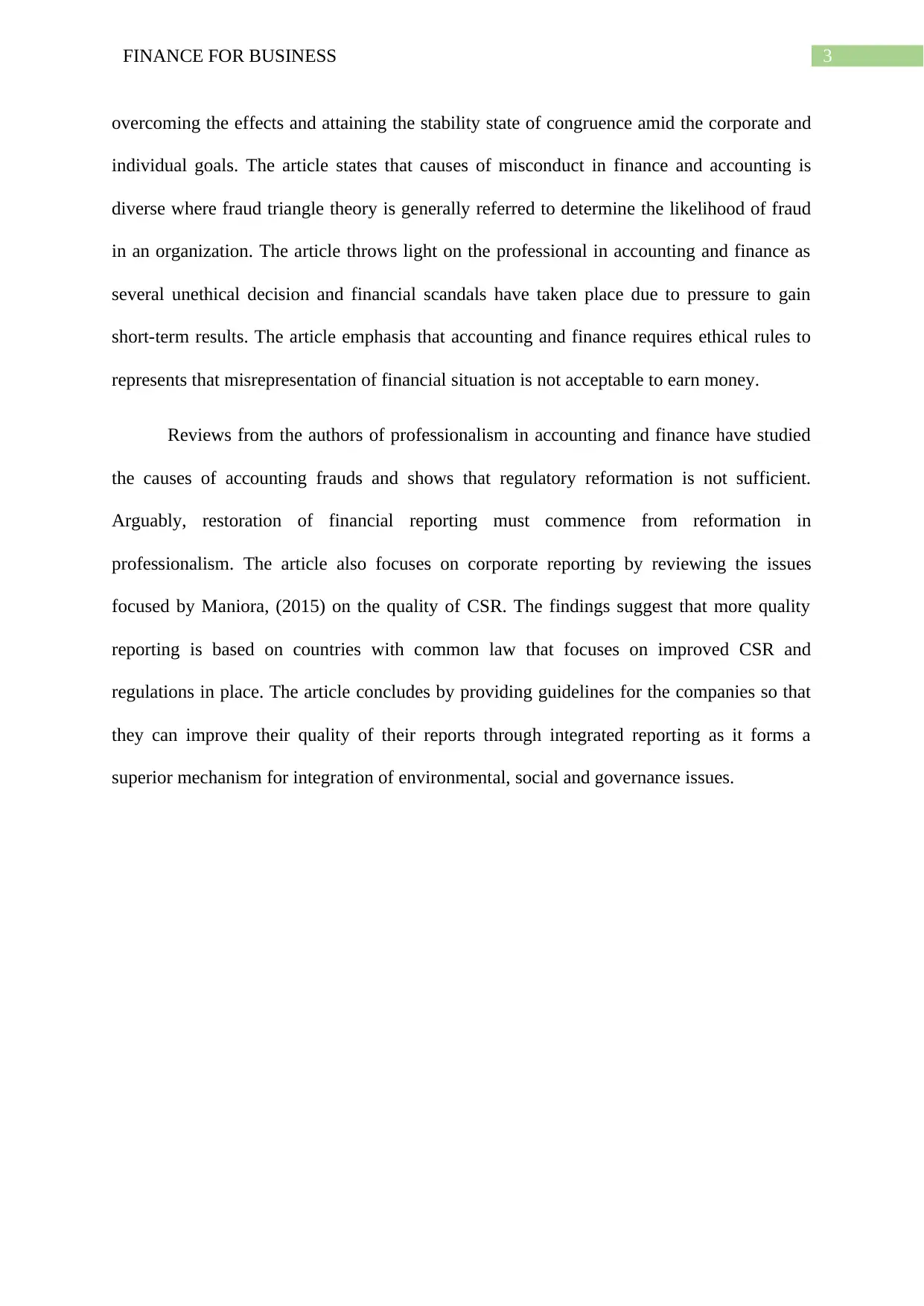
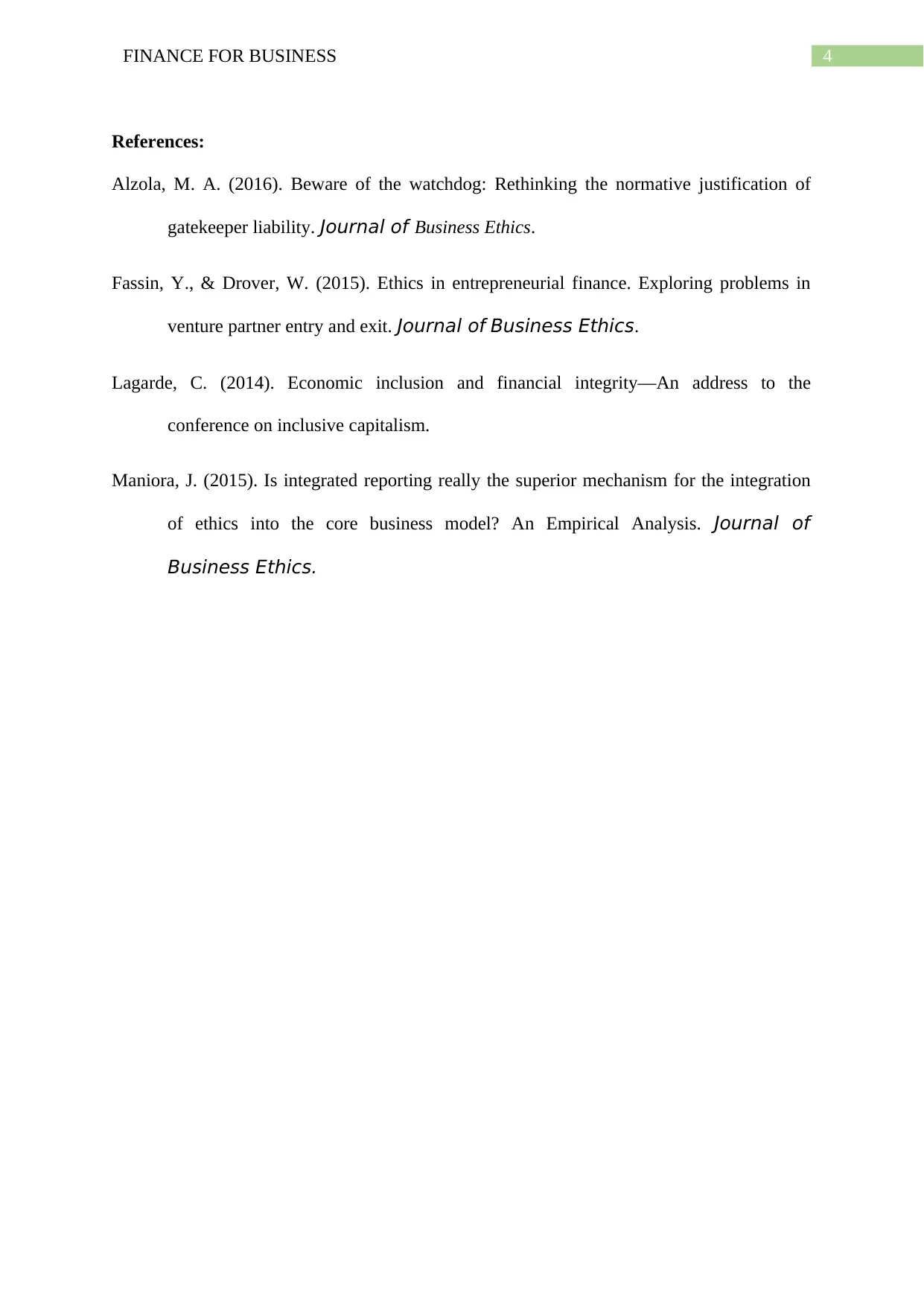






![[object Object]](/_next/static/media/star-bottom.7253800d.svg)